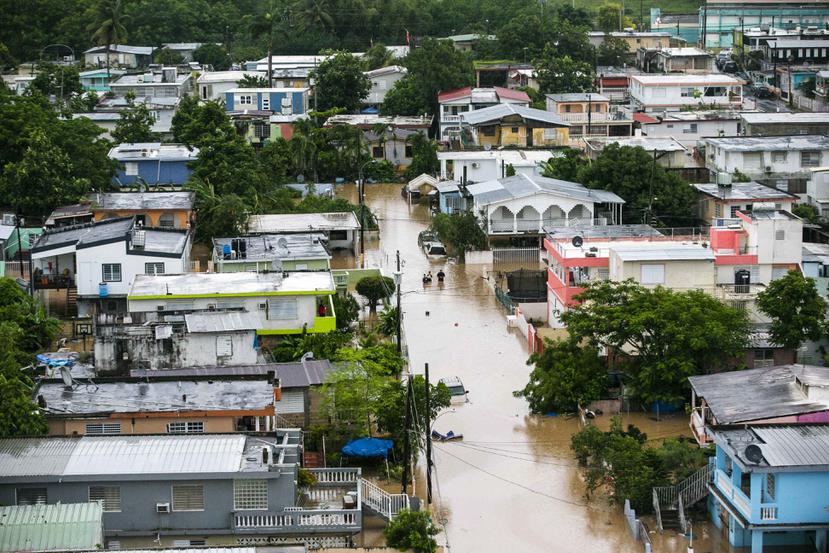Exploring pros and cons of nuclear in Puerto Rico
.png)
An article on the Huffington Post examines the prospects for re-establishing nuclear energy in Puerto Rico, uncovering a mix of positive and negative attitudes toward nuclear power in the U.S. territory.
No BONUS: The article begins with a reference to the Boiling Nuclear Superheater (BONUS) reactor, known locally as the “Domes,” which operated briefly in Rincón but was shut down in 1968 just four years after reaching criticality and later became a museum. With no other nuclear power available, Puerto Rico has turned to other, less-than-ideal energy sources.
“The imported fossil fuels Puerto Rico burns to produce most of its electricity are dirty and expensive,” the article states. “Solar panels and wind turbines can only do so much in a place with limited land, and the lithium batteries on the market today can’t store power from those weather-dependent renewables for more than a couple of days. The Caribbean archipelago is physically isolated, with no high-voltage lines connecting its grid to neighboring systems.”
Immoral fiasco: Highlighted in the article is the story of Angel Manuel Ciordia, an ailing 75-year-old whose cerebral palsy has left him dependent on an electric wheelchair, electric bed, and electric breathing machine. However, the undependability of Puerto Rico’s electrical grid leads to power outages at least three time a week—for Ciordia, a life-threatening situation.
Calling the continuing infrastructure instability on the island more than seven years after the devastation of Hurricane Maria “immoral” and “a fiasco,” he thinks Puerto Rico should consider turning again to nuclear energy. “Nuclear is clean, cheap, and doesn’t carry the dangers it carried 25 years ago,” he said. “We are not supposed to live like some third world village. A nation without electricity cannot survive.”
Stay far away: According to the article, “Few Puerto Ricans even know that Rincón’s strange dome once contained a nuclear reactor, nearly 60 years after its closure. But it’s easy to find people who say atomic energy should stay far away from their island.” The article then focuses on people who are against nuclear, such as a marine biologist–turned-nun who “winces and shakes her head” when asked about it; an organic produce farmer who “looks at you with suspicion and asks if you’re on the industry’s payroll” when nuclear energy’s benefits are explained to him; and a wrestler who expresses “grave concern.”
Nuclear skepticism: Some of the skepticism of many Puerto Ricans regarding nuclear energy can be explained by a series of technology-related environmental and health problems that people on the island remember, including cancer-causing contamination from toxic metal in discarded U.S. military munitions and from improperly stored coal plant ash, as well as destruction of farmland caused by the construction of solar and battery facilities.
The article noted that “it was no surprise when in 2020, ahead of that year’s gubernatorial election, nearly every candidate came out against nuclear energy during . . . a televised election debate hosted by a local green group.”
The only person to potentially entertain the idea—Javier Jiménez, the current mayor of the town of San Sebastian and a candidate running for governor this year—said he would have to study whether nuclear power would work in Puerto Rico. So far, the topic has received little attention in the 2024 election.
Pro side: Despite skepticism and fear, some people in the territory vigorously advocate for nuclear power, including Jesús Nuñez, a young engineer who has worked on nuclear reactors on the U.S. mainland. “I grew up with The Simpsons,” he said. “I grew up with the images from TV that these things might explode. That was my original education in nuclear. But after I started educating myself about it at work, I gained respect for radiation.”
Nuñez started the nonprofit Nuclear Alternative Project to educate the Puerto Rican public about nuclear energy’s potential. In 2020, the group published a Department of Energy–funded study that concluded that small modular reactors could be used to replace as much as 74 percent of Puerto Rico’s existing power plants. However, such reactors would need either federal funding or a private investor to become reality.
Unfortunately, according to the article, the DOE stopped grant payments to the Nuclear Alternative Project in 2021 because of a recently passed Puerto Rican law mandating 100 percent renewable energy by 2050; and that law does not include nuclear as a source of clean power.
Younger generations: “Attitudes in Puerto Rico will change over the next decade,” the article said, “when younger generations—who support nuclear power more than their parents, polls show—gain more political influence.”


